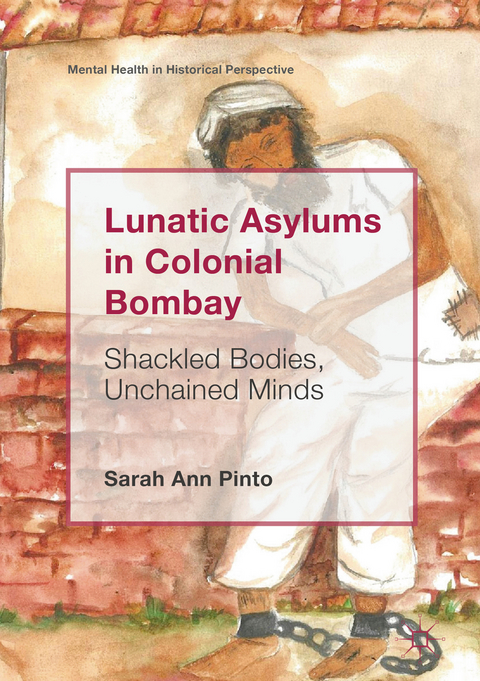
Lunatic Asylums in Colonial Bombay
Springer International Publishing (Verlag)
978-3-319-94243-8 (ISBN)
This book traces the historical roots of the problems in India's mental health care system. It accounts for indigenous experiences of the lunatic asylum in the Bombay Presidency (1793-1921). The book argues that the colonial lunatic asylum failed to assimilate into Indian society and therefore remained a failed colonial-medical enterprise. It begins by assessing the implications of lunatic asylums on indigenous knowledge and healing traditions. It then examines the lunatic asylum as a 'middle-ground', and the European superintendents' 'common-sense' treatment of Indian insanity. Furthermore, it analyses the soundscapes of Bombay's asylums, and the extent to which public perceptions influenced their use. Lunatic asylums left a legacy of historical trauma for the indigenous community because of their coercive and custodial character. This book aims to disrupt that legacy of trauma and to enable new narratives in mental health treatment in India.
Sarah Ann Pinto completed her PhD in History from Victoria University of Wellington in 2017. Her awards include the 'Bowen Prize for the Best Student in History, 2017', and the 'Fr Henry Heras Prize, 2008'. Her passion for history and healing motivates her research. Through her work, she intends to enable new narratives in mental health treatment.
1 Introduction.- 2 Indian Insanity and the Local-Colonial Contest for its Treatment.- 3 The Asylum as 'Middle Ground': Contestations and Negotiations.- 4 The 'Common Sense' Treatment of Indian Insanity.- 5 Unsound Soundscapes: Shrieks, Shouts and Songs.- 6 Public Perceptions of the Pagal Khana.- 7 Conclusion: Shackled Bodies, Unchained Minds.
"Sarah Pinto's book is one of the first attempts to study the social history of lunatic asylums in the Bombay Presidency, and she approaches her study through an analysis of Indigenous responses to these colonial institutions. ... the book will prove to be a fascinating read for anyone interested in the history of colonial health and healthcare. It is based on a vast body of primary sources available in India and the United Kingdom." (Mrunmayee Satam, Journal of Colonialism and Colonial History, Vol. 20 (3), 2019)
“Sarah Pinto’s book is one of the first attempts to study the social history of lunatic asylums in the Bombay Presidency, and she approaches her study through an analysis of Indigenous responses to these colonial institutions. … the book will prove to be a fascinating read for anyone interested in the history of colonial health and healthcare. It is based on a vast body of primary sources available in India and the United Kingdom.” (Mrunmayee Satam, Journal of Colonialism and Colonial History, Vol. 20 (3), 2019)
| Erscheinungsdatum | 13.09.2018 |
|---|---|
| Reihe/Serie | Mental Health in Historical Perspective |
| Zusatzinfo | XVII, 242 p. 28 illus. in color. |
| Verlagsort | Cham |
| Sprache | englisch |
| Maße | 148 x 210 mm |
| Gewicht | 577 g |
| Themenwelt | Geisteswissenschaften ► Geschichte ► Allgemeines / Lexika |
| Geschichte ► Teilgebiete der Geschichte ► Kulturgeschichte | |
| Schlagworte | Administration • Bombay Presidency • Colonial • Family • India • Indigenous • Madness • Mental Health • Soundscape • Trauma • Treatment • Wellbeing |
| ISBN-10 | 3-319-94243-3 / 3319942433 |
| ISBN-13 | 978-3-319-94243-8 / 9783319942438 |
| Zustand | Neuware |
| Haben Sie eine Frage zum Produkt? |
aus dem Bereich


